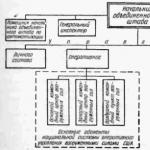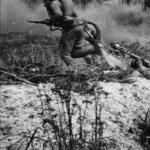Alexey Berestov is one of the main characters in A. S. Pushkin's story "The Young Lady - a Peasant Woman".
Alexei's mother died in childbirth, and Alexei was brought up by his father, a wealthy landowner Ivan Petrovich Berestov. Alexei studied at the university and wanted to be a military man, but Ivan Petrovich is against such a desire of his son, he would like Alexei to be an official.
Alexey is a kind young man, he is well-mannered and smart. He does not like the stiff and narcissistic young ladies of secular society. He himself is cheerful and cheerful, loves to laugh and frolic, so he often jokes and plays with the yard peasant girls. He likes them for their good health, bright blush and cheerfulness. Alexey leads an active lifestyle, often rides a horse, loves to hunt. He refuses to be an official, he does not like the boring monotonous life, Alexey does not want to pore over the papers.
Arriving at the estate to his father, Alexei met in the forest with a girl who called him Akulina. A sincere and honest young man fell in love with a simple girl, as he appreciates real human qualities. Akulina liked him for her openness and restraint, she does not flirt and does not make faces, like the girls of his circle. He teaches Akulina to read and write, is engaged in her education. Entering the role of senior comrade and teacher, he becomes more and more attached to his student. Soon he can no longer imagine life without his beloved. He thinks a lot about his future life, Alexei understands that he will be condemned by the upper class if he marries a simple peasant woman from the people. But he has a strong character and a strong will, the young man is ready to confront not only his father, but the whole society. He is even ready to explain himself to the father of Lizaveta, who is predicted to be his wife. He is sure that it will be more honest this way, and resolutely goes to the Muromskys, hoping for the prudence of Liza's father.
When Berestov realizes that Liza is his beloved Akulina, Alexei is simply happy that everything worked out so well. The Muromskys and the Berestovs have reconciled, a happy future awaits everyone.
Option 2
One of the main characters of A. S. Pushkin's story "The Young Lady-Peasant Woman" appears on the pages of the work after the reader gets acquainted with the heads of the warring neighboring families, the son of one of which he is.
Rumors about a young man who graduated from the university, returned to his father's estate in Tugilovo, spread everywhere, and reached a sweet girl named Liza Muromskaya, who was the beloved daughter of her father, a wealthy landowner.
Alexei did not want to fulfill his father's desire - to occupy a civil position. His dreams were connected with military affairs. Berestov's appearance, the ability to confidently ride a horse, a slender camp were suitable for this lesson.
There was talk between the girls about the attractiveness of Alexei: "Handsome ... a blush all over his cheek." Local peasant girls were surprised at his cheerful disposition, simplicity, and mobility. Liza's maid enthusiastically described his behavior during the game of burners, a strange desire to kiss the first girl that came across. Thanks to his passion for hunting, he met Lisa in the forest, dressed in peasant clothes.
A young man falls in love with a stranger who calls herself Akulina, the daughter of a blacksmith. Despite his solid position, he without looking back is fond of a girl for two months. He thinks about life and marriage to his beloved (an ordinary peasant woman). Alexei remains devoted to his feelings to the end, despite the difference in social status.
The happiness from the confession in the capricious young lady with Lisa's whitened face was boundless. So the landowner's son, who turned out to be a sincere, kind person, an obedient son, a lover of nature and adventure, went the path of revelation, love for a happy family life. The young lady, deprived of the manners characteristic of her position in society, upbringing, considered in him a person with real feelings, without secular habits and lies.
The image of this hero helps to reveal the main idea of the work of A. S. Pushkin. Thanks to pure, true love, Alexey and Lisa were able to cope with the prejudices that prevail in society. They bypassed the rules that everyone around them obeyed, allowing themselves to love each other and stay together.
Composition The image and characteristics of Berestov
The story of A.S. Pushkin's "The Young Lady-Peasant Woman" was published in 1831. The plot of the work is built on the intrigue of the relationship between two heroes: Alexei Berestov and Liza Muromskaya.
Alexei, the son of a wealthy and noble landowner Ivan Petrovich Berestov, received an excellent education. After graduation, he wanted to devote his life to military service. But, since his father was categorically against this, Alexei returned home. In the village of Tugilovo, where the Berestov family estate was located, there were no special affairs or entertainment for the young man. Therefore, Alexei became addicted to hunting.
The whole district spread the news that a young gentleman lives in the Tugilovo estate. In addition to being well educated, he is handsome. Neighboring ladies of marriageable age lost their peace. Everyone wanted to get such a groom. But Berestov Jr. paid no attention to anyone. One morning, in the forest, where he went hunting, he met a pretty peasant girl. Alexei saved the young beauty from a pack of hounds. Young people met and liked each other.
Upon meeting, the girl said that she was the daughter of a local blacksmith. Named Akulina. In fact, it was the daughter of a neighboring landowner, Liza Muromskaya. Her father, Grigory Muromsky and Berestov Sr. have long been at enmity. Berestov Jr. wanted to see the girl as often as possible. Young people met often. Alexey even began to teach Akulina-Lisa to read and write. And he was touched that the girl was so capable and learned so quickly. Soon they began to correspond with each other.
No one knows how long such communication of young people would last and how it could end. One fine day, Lisa's father fell off his horse near the Berestovs' estate, where he was given first aid. After this incident, the landowners who were at enmity with each other reconciled. And they decided to marry their children.
But Alexei, who was in love with Akulina without memory, did not want to hear anything about this marriage. And he, who had previously been held back by social inequality between him and a girl from the lower class, decided to act. The hero wrote her a letter in which he confessed his love and made a marriage proposal.
This is how love influenced Alexei Berestov. For the sake of a real feeling, he stepped over the foundations and traditions. Disregard conventions and prejudices.
Option 4
Alexey Berestov is one of the important characters in the work of Alexander Sergeevich Pushkin "The Young Lady-Peasant Woman". The composition of the story is based on the love relationship between the two main characters: Alexei Berestov and Liza Muromskaya.
The mother of Alexei Berestov died during childbirth, so his father, the influential landowner Ivan Petrovich Berestov, was engaged in raising the boy. Alexey graduated from the university, and after that he wanted to become a military man. But the father had other plans for his son. He wanted to see his son in the role of an official. Therefore, against his will, Alexei Berestov returns home. His family estate is located in the village of Tugilovo. For a young man, this is a very boring place, so Alexei devotes all his free time to hunting.
Since the village is small, the news about the young and rich master quickly spread around the district. Every marriageable girl wanted to get such a groom. But there was no attention from him. These same ladies did not know that Alexei liked strong and healthy peasant girls.
So, one morning, in the forest, he met a delightful peasant girl. The young man saved her from a pack of dogs. When they met, the girl told him that her name was Akulina, and she was the daughter of a blacksmith. But in fact, her name was Liza, and she was the daughter of a neighboring landowner Muromsky. The girl deliberately lied, as their fathers had been at enmity for a long time.
Young people liked each other so much that they decided to see each other all the time. Alexei began to teach the girl to read and write. And, of course, he was surprised how a peasant girl grasps everything on the fly. Soon they began to correspond.
It is difficult to predict how long such communication would have gone on if not for one case. One fine day, Liza's father fell off his horse not far from the Berestovs' estate. There he was helped and provided with everything he needed. After that, years of war came to an end. And by a peace treaty, it was decided to conclude a marriage between the children of the landowners. This became the starting point for Alexei's further decision. If earlier he was still held by social foundations, now the hero has decided on an act. He confessed his love to his beloved and offered his hand and heart.
Who would have thought that the hero is able to cross out all the rules and traditions of his society and find true love.
Some interesting essays
- Characteristics of a peasant in the Tale of how one peasant fed two generals
From childhood, everyone knows fairy tales. They are different, but in any magical story, good must triumph over evil. The writer Saltykov-Shchedrin addresses the theme of fairy tales, but fills them with a different meaning.
- Composition based on the painting by Laktionov Letter from the front (description)
The picture is dedicated to the theme of the Great Patriotic War, which will never be forgotten by more than one citizen of our country.
- Composition based on the painting Lilac in Konchalovsky's basket Grade 5 (description)
The artist managed to capture an amazing moment, thereby allowing other people to enjoy the still life for decades and peer into it. After all, few people stop to see what colors the sky is painted in.
- Composition The relationship of fathers and children (Fathers and children of Turgenev)
- Pyotr Grinev's dream from the novel Pushkin's Captain's Daughter Analysis of the episode
A.S. Pushkin at the beginning of his story "The Captain's Daughter" used a symbolic device - a prophetic dream. With this dream, the author sets the tone for the rest of the story, warns the reader about the coming tragic changes in the life of the protagonist.
The main characters of Pushkin's Young Lady Peasant live during the time of the nobility of the 19th century and are forced to observe the foundations of society.
The main characters of the story "The Young Lady Peasant Woman"
- Ivan Petrovich Berestov,
- his son Alexei is the son of Ivan Berestov,
- Grigory Ivanovich Muromsky - a neighbor landowner, an Angloman landowner, "a real Russian master"
- Lisa- daughter of Murom.
Lisa Muromtseva- the daughter of a wealthy Angloman landowner Grigory Ivanovich Muromsky, beloved of Alexei.
“She was 17 years old. Black eyes enlivened her swarthy and very pleasant face. She was the only and consequently spoiled child.
The girl was raised by her father, he was helped by an English nanny, Miss Jackson. Lisa was a romantic nature, but she was very quick-witted. To get acquainted with the son of the landowner Ivan Petrovich Berestov, Liza introduced herself as the blacksmith's daughter, Akulina. They walked, he taught her and was delighted with her mind. Liza, who introduced herself as a peasant woman, charmed Alexei as she was a smart, resourceful, natural, kind and decent girl with a sense of dignity.
When her father invited the Berestovs to dinner, Lisa was frightened, but she came up with a way out of this situation. She dressed up and pretty much whitened her face, so Alexei did not recognize her. He learned the truth when their fathers decided to marry them. Alexei came to the Muromtsevs to explain that he loved the daughter of the blacksmith Akulin, but could not marry Lisa. When he learned that Lisa was the same Akulina, he was very surprised and delighted.
Alexey Berestov- ineducated at the university. "Well done", "handsome, slender, tall, blush all over." Plays burners with the peasants. Lisa liked him because he was sincere and not proud of his origin and wealth.
“He was brought up at ... a university and intended to enter the military service, but his father did not agree ... They did not yield to each other, and young Alexei began to live as a gentleman for the time being, letting go of his mustache just in case (attribute of the military)”
“Surprisingly good, handsome, one might say. Slender, tall, blush all over his cheek ... "
"... so kind, so cheerful"
Ivan Petrovich Berestov- a Russian nobleman, leading a household according to the Russian model. He is a reasonable man, a good father, a hospitable host. Berestov is proud of his cloth factory and rich estate, but he thinks only about profit.
« In his youth he served in the guard , retired in early 1797, went to his village and he hasn't been out since. He was married to a poor noblewoman , which died in childbirth , while he was in the outfield.
Household exercises he was soon comforted. He lined up house according to his own plan, got himselfcloth factory tripled income and began to consider himself the smartest person all around…”
Grigory Ivanovich Muromsky- "He was a real Russian master," but he did everything in the English manner. Both types of landlords are characteristic of the local nobility of that time in the 19th century. He is in all the time introduced something new, but was a good father. But Muromsky lives beyond his means and does not manage his household very wisely.
"This one was real Russian master . squandered in Moscow part of the estate his own and at that time widowed , he left at the last your village , where continued p play tricks , but in a new way.
He divorced english garden , on which spend almost all other income.
At his daughter was Madame English . He cultivated his fields English method and despite significant cost reductions, Grigory Ivanovich's income did not increase ; he is in the villagefound a way to get into new debts ; with all that revered as a man not stupid …»
The story "The Young Lady-Peasant Woman" is included in the cycle of famous Pushkin's "Tales of Belkin", created by the writer in the Boldin period. Conceived by Pushkin in 1829, they came out as a separate collection. Boldin autumn (1830) became one of the most fruitful periods in the writer's work. "The Young Lady-Peasant Woman" is a book that completes a cycle of five short stories.
Many researchers believe that the plot of the story largely repeats another well-known work written by Pushkin's contemporary - N. M. Karamzin. "Poor Liza" is one of the first works of sentimentalism in Russian literature. Written in 1792, the story caused controversy in literary and public circles. The tragic love story of a peasant woman Liza for a young nobleman Erast was enthusiastically received by readers and later repeatedly interpreted by other authors.
However, many plots of the Pushkin cycle migrated to the pages of the book from life. Memories and everyday stories heard and noticed by the writer formed the basis of "Shot", "Snowstorm" and other stories. But "The Young Lady-Peasant Woman" is more connected with the refraction in Pushkin's mind of the existing literary traditions, which the writer modified, according to his author's intention.
Genre, direction
Belkin's Tales is Pushkin's first prose work, which was published during the author's lifetime. Five short stories from the lips of the fictional narrator Ivan Petrovich Belkin, who wrote down the stories he heard from different people, are formally separate plots, but internally connected, forming a single whole. Each story ideologically complements the other, strengthening the influence of each subsequent one.
Belkin's Tales is a vivid example of realistic prose. On behalf of a conditional narrator, Pushkin shares with the reader a series of non-fictional stories, the characters of which are devoid of static, they are vital and believable. It is no coincidence that the preface notes the fact of Belkin's lack of education, his non-participation in literary creativity. This approach convinces the reader of the authenticity of the events depicted. Outdated romantic situations and characters, deeply rooted in literature, lose out to the obvious simplicity and unpretentiousness of Pushkin's plots, the characters of which are placed in unusual, but quite probable life circumstances that truly reflect life.
The Young Lady Peasant Woman is a story somewhat different from the others, since it has more mischievous and comical in it. Rejecting the romantic template with its tragic ending, Pushkin happily resolves the conflict of love, as if offering his own version of the story of unequal love, traditional in literature. Unlike the story of poor Lisa, the social barriers between the loving hearts of Lisa and Alexei are destroyed, which creates scope for a happy, albeit obviously philistine, life of the characters.
The meaning of the name
The title of the story is closely related to its plot. The Young Lady-Peasant Woman refers to the main character of the story - Lizaveta Grigorievna, the daughter of the district landowner Muromsky.
Disguised as a peasant woman, Lisa pretends to be the daughter of a local blacksmith. Thus, the village girl Akulina, met by Alexei Berestov in the forest, and the young lady Liza are one and the same character.
essence
The main events of the story unfold around two noble families - the Berestovs and the Muroms, who live in the neighborhood. The fathers of the families do not get along as the conservative Berestov denounces his neighbor's Anglomania. Daughter of Murom, Liza wants to meet Alexei Berestov, but the quarrel of the fathers creates an obstacle to the meeting.
Disguised as a peasant woman, Liza meets Alexei in the forest and introduces herself as Akulina, the daughter of a village blacksmith. Inspired by the acquaintance, Alexei teaches an uneducated girl to read and write, marveling at the speed with which she learns. Meanwhile, Berestov, the father, cannot cope with the horse during the hunt and accidentally ends up in the house of the Muromskys. As a result, the fathers get to know each other in detail and reconcile.
Lisa's father invites Berestov and his son to his place. Lisa manages to avoid exposure. She goes out for dinner, dressed in ridiculous clothes, made up and whitewashed. Alexei does not recognize her. The fathers, who managed to become close friends in a short time, decide to marry the children. Alexei is determined to go against the will of his father and secretly marry Akulina. He goes to the Muromskys' house and recognizes his Akulina in the young lady Liza. Such is the plot of the story.
Main characters and their characteristics
- Liza Muromskaya- the main character of the story, the daughter of the landowner Grigory Ivanovich Muromsky, a beautiful and cheerful girl. Joking and frivolous, she, on the one hand, is capable of a prank, on the other, of a bold and decisive act. "She was the only and consequently spoiled child." Having received a good education, the girl is well versed in music and the arts, studying languages, but deep down Lisa is a romantically tailored person. She believes in love, therefore she has a genuine interest in Alexei Berestov, who, according to rumors, has concentrated a whole set of truly romantic qualities in himself. Disguised as a peasant woman, Liza shows miracles of fantasy, and for a long time pretends to be the uneducated daughter of a blacksmith. A funny and easy character is combined in her with an amazing ability to love. She is devoid of stiffness and arrogance, therefore, in the image of a peasant girl, Lisa is so organic that Alexei does not catch her in a lie. The naturalness of her behavior, sharp mind and striking beauty - everything as a whole attracts the hero.
- Alexey Berestov- the son of Berestov, who after university came to the village to his father. He dreams of becoming a military man, which is quite consistent with his appearance: a tall, stately, attractive young man becomes the main reason for gossip among county girls. "The young ladies looked at him, and others looked at him." Aleksey himself assumes an even greater halo of mystery, appearing gloomy and disappointed in front of the girls, tells them "about the lost joys and about his faded youth" and generally manifests himself as an experienced ladies' man. But, in general, Alexey is a simple and good person, honest and kind. Having fallen in love with a peasant woman Akulina, the hero is so sincere in his feelings that he is ready to marry her against the will of his father.
Topics and issues
- The main theme of the story, of course, love. Love becomes the main driving force for the development of action. Before the mutual inclination of the heroes, all external circumstances fade.
- Humor. In addition, in The Young Lady-Peasant Woman, the reader will also find the obvious comedy of the situation. But the humor of the story is kind and bright, making you smile at the happy absurdity of the events taking place, in the center of which are the heroes. For example, Pushkin very ironically draws the image of Muromsky in his desire to build life in English manners. Anglomania is also a peculiar manifestation of the stereotype of noble life.
- Issues“Lady-Peasant Women” is also closely connected with the denial of the prejudices of society, in this case, the county one. The stereotypes and conventions of the environment are also manifested in the lives of the heroes: the noble status obliges them to lead a life that they do not like, to marry against their own will.
- Conflict. In order to be truly sincere, the characters are forced to constantly fight against the way of life that prevails around them. The heroes themselves, Liza and Alexei, are very trivial characters, they have not escaped the imprint of the vulgarity of county life, but they are both capable of bold and decisive actions in the name of love, which undoubtedly deserves respect.
the main idea
The main idea of the story is in the desire of a person to be above prejudice, defending his right to happiness. It is enough to step over the conventions to become happy. The fate of the heroes, by a lucky chance, turned out well, and the end was marked by the triumph of eternal values: love, family and friendship.
The story makes the reader believe in the sincerity of a real feeling that overcomes all obstacles. All external circumstances fade before love. The meaning laid down by A.S. Pushkin lies in the affirmation of eternal values and in the criticism of class prejudices. It is social barriers that hinder happiness.
What does it teach?
A. S. Pushkin laid down a certain morality in the story. A person needs to remain himself, and not reconcile himself with the masks that society imposes. Only then will people begin to appreciate not the social position, not the level of prosperity, but the personality itself. And so it happened with the main characters, who chose each other, and not the labels hung on them.
The author's conclusion is simple: people need equality in order to get to know each other better. It is obvious that all conflicts arise from ignorance, because even neighbors may not communicate with each other for years, which means they may not know the true state of things. Only after a normal human conversation did the fathers reconcile, realizing how stupid it was to condemn someone you don’t even know. And their children proved that peasants and nobles also lacked equal communication. Only a conversation can unite them, destroy all omissions and mutual insults. But people lack the courage to reject social labels that prevent unity. Thus, the author condemns the social inequality in Russia, which divides a single people into an elite and serfs. In his reasoning one can hear a protest against serfdom.
Interesting? Save it on your wall!>Characteristics of heroes
Characteristics of the main characters
Alexei Ivanovich Berestov is the main character of the story, the son of a well-born landowner Ivan Petrovich Berestov, a friend of Akulina (Liza). After graduating from the university, Alexey returned to his native village, to the Tugilovo estate. His father did not allow him to enter the military service, so that the young man remained to live as a "master" in the village.
Ivan Petrovich Berestov - a landowner in Tugilov, father of Alexei, a neighbor of the Angloman Muromsky. Berestov, a widowed landowner who knows how to manage his household independently and considers himself very smart, although he read only the Senate Gazette. Neighbors respect him, they say that he is an intelligent landowner, but they consider him a little proud and arrogant.
Elizaveta Grigorievna Muromskaya (Betsy) is the main character of the story, the daughter of the Angloman landowner Grigory Ivanovich Muromsky, Alexei's beloved. Lisa is only seventeen years old. She is naturally endowed with a swarthy and pleasant face, lively black eyes. She was orphaned early and raised by her father, a wealthy landowner.
Grigory Ivanovich Muromsky is one of the main characters of the story, the father of Elizabeth, a neighbor and foe of Berestov. Muromsky was widowed early and raised his only daughter, Liza, whom he called Betsy in English. Being a wealthy landowner and owner of an estate in Priluchino, he loved to squander his fortune right and left, spoiled his daughter and ran the household in the English manner, for which he was known in the district as an Englishman landowner.
Minor character, Liza Muromskaya's maid and confidant in her secret affairs. She is always at the service of the hostess and is ready to fulfill any of her instructions. By nature, Nastya is quick, businesslike, but a little windy.
Miss Jackson
An Englishwoman, a woman of forty, Lisa's tutor. She did not like Russia, but a salary of 2,000 rubles kept her from the Muromskys. When Liza put on her make-up so that Alexey would not recognize her when he visited their house, she stole antimony and white from Miss Jackson's chest of drawers. Then she repented, and the Englishwoman forgave her.
The character of a person is not defined at birth, it develops on the basis of natural data under the influence of the environment and society, manifesting itself especially clearly at turning points in life.
Pushkin does not give evaluative definitions to the characters of Berestov and Muromsky, Alexei and Liza.
A confidently drawn life story of the characters, laconic lines of portraits, brief and capacious speech characteristics, including improperly direct speech, the very behavior of the characters in the current situation - all these are artistic means of creating characters in the story.
In fact, the time limits of the action of the Young Lady-Peasant Woman are defined. This is two or three months, starting from Nastya's visit to the cook's wife and up to the recognition scene. However, the boundaries are pushed apart when we restore the biographies of Muromsky and Berestov and, looking ahead, we see how two estates merge into one, two families - one rich, the other noble, and old people nurse their grandchildren.
Ivan Petrovich Berestov
in his youth he served in the guards. Under Catherine II, service in the guards was a privilege of wealthy noble families. The guards have always been the backbone of the Empress. It is no coincidence that Berestov retires at the beginning of 1797, when, after the death of Catherine II, Paul I, who imposed the Prussian order in Russia, was on the throne. A young, ardent guardsman, Berestov, like most Russian people, does not want to obey Paul I, and his protest against the new order is expressed by a letter of resignation. Berestov at that time was about 30 years old, that is, he was born around 1767.
In 1801, Alexander I became emperor. Serfdom seemed unshakable. The nobility enjoyed all the privileges. The nobles understood that manufactories and factories were a profitable business, so the number of industrial enterprises in Russia increased significantly. Becoming the sole owner of the estate, Berestov was not satisfied with his parental home, but decided to build his own, according to his own plan (he had something to compare with - he served in St. Petersburg!). The money invested in the construction of the factory quickly returned, revenues tripled. The serfs did not have to be paid like hired laborers. Berestov became one of the richest landowners in the province, sent his son, who had grown up by that time, to study in the capitals, and then to the university (Göttingen University was the most popular among Russian students), he himself received guests, took care of horses, dogs, did not read anything, except for the Senate Gazette, he himself recorded the expense.
Out of attachment to everything domestic, Russian - or out of economy, bordering on stinginess, he wore a frock coat made of homemade cloth, but on weekdays he went in a plush jacket. It seemed that he was a hospitable host, but for the treat, the neighbors paid him loud praises for economic orders, agreed that he was the smartest person, did not interfere with his narcissism, portrayed humility, and then went to talk about Berestov of Murom and entertained Grigory Ivanovich's rage.
Of course, Berestov was a good host. Russian people said about such people: “The arrogance is noble, but the mind is peasant” (V. I. Dal). He knew the value of labor and time, he knew the value of money, and therefore he could not understand Muromsky's folly. Self-confidence allowed Ivan Petrovich to feel at home everywhere. He was accustomed to the fact that those around him listened to him, and did not particularly think about the mood of people.
In the first place in the value range of Berestov was welfare, the estate. He does not miss an opportunity to emphasize his wealth: in order to travel three miles, he harnesses six horses; stubborn Alexei, who does not want to marry Liza Muromskaya, is threatened with deprivation of inheritance. He looks at his son’s marriage as a bargain: “Grigory Ivanovich was a close relative of Count Pronsky, a noble and strong man; the count could be very useful to Alexei ... "
From the image of Berestov there are only a few steps to the image of Kirila Petrovich Troekurov. The main, most prominent, convex character trait of both is love for oneself.
If we conditionally divide the story, like a play, into five acts, then in the first two acts we see an allegedly pronounced conflict between Berestov and Murom.
Grigory Ivanovich Muromsky
was a close relative of Count Pronsky, had a significant fortune. Perhaps he was born in Moscow and, if he was a child, he rarely visited his estate. It was these people who did not know the value of labor and the time spent on work, who had no idea how bread would be born, carelessly squandered their fortune in the capitals, lost at cards, held balls (remember Father Eugene Onegin). Muromsky served, but probably not for long (“the old people remembered the old days and anecdotes of their service”). Perhaps he traveled abroad, where he became infected with Anglomania, that is, he became a passionate supporter of all things English.
In Moscow, his daughter was born and grew up. After the death of his wife, Muromsky left with his daughter for his village. His “pranks” are the English garden, the costumes of English jockeys on the grooms, the maintenance of “Madame Miss Jackson”, who “received ... two thousand rubles and died of boredom in this barbarian Russia, all this turned into new debts, besides, the peasants of the estate, mortgaged by Grigory Ivanovich to the Board of Trustees, had to pay interest on the amount that the landowner safely spent. The peasants went bankrupt, and the neighbors admired how Muromsky loves and pampers his daughter, whom he left without an inheritance, in fact with only debts (“... all her mother’s diamonds, not yet pawned in the pawnshop, shone on her fingers, neck and ears” ). In addition, he never tried to penetrate her inner world. All actions incomprehensible to him, he interpreted in a way convenient for himself: after Lisa's first early walk, he talks about "the principles of human longevity, gleaned from English magazines"; after dressing Lisa for dinner, he asks her a question and, without waiting for an answer, advises her daughter to use whitewash.
Just as Berestov does not see and does not understand his son, so Muromsky sees in Lisa only a naughty and naughty Betsy. But if Berestov looks like the industrious Krylovsky Ant, then his neighbor glides through life like a Moth. This sliding, the habit of avoiding serious problem solving, carelessness and irresponsibility are also manifested in his speech. ("What, are you out of your mind? - objected the father, - how long ago did you become so shy, or do you harbor hereditary hatred for them, like a romantic heroine?")
We see the same thoughts of Muromsky about Lisa's marriage: “... upon the death of Ivan Petrovich, all his estate will pass into the hands of Alexei Ivanovich; that in this case Alexei Ivanovich would be one of the richest landowners in that province, and that there was no reason for him not to marry Lisa. Muromsky's thought about of death neighbor contributed to the transformation of acquaintance into friendship!
Just as easily as with financial matters, Muromsky treats matters of the heart: “... if Alexei is with me every day, then Betsy will have to fall in love with him. It's okay. Time will take care of everything." Grigory Ivanovich wants to get rid of his daughter as soon as possible, because the heaviest burden is the burden of responsibility.
Pushkin himself, thanks to the narrator - Belkin, does not give a direct assessment of the life of an "educated European", only once with sober eyes - the eyes of Alexei - we see Muromsky as simply a "narcissistic Angloman", and Berestov - "prudent landowner".
So, the life positions of Berestov and Muromsky are built on the same platform - self-love. It was this, and not the "shyness of a short filly" that caused the feud "old and deeply rooted" to end. Was there any hostility? It could not be ancient, Muromsky did not live in Priluchino for so long, and the neighbors portrayed its depth, zealous in conveying the words of one landowner to another.
The author parodies the theme of the enmity of the fathers, popular thanks to W. Shakespeare, and therefore uses so many words suddenly, unexpectedly, hatred, adversary and promising "suddenly found himself at a distance of a pistol shot." But the enmity is inflated by the neighbors and bursts like a soap bubble at the first meeting of the two landowners.
It should be noted that in "Dubrovsky" the conflict is already real, it is based on the independence of one and the lust for power of another neighbor.
Berestov and Muromsky are two typical representatives of the nobility of the early 19th century, their images will be continued in the heroes of I. S. Turgenev, L. N. Tolstoy, I. A. Goncharov and I. A. Bunin.
Alexey Berestov.
In the 19th century, the relative speed of the flow of time intensifies even more, and long before I. S. Turgenev, A. S. Pushkin outlines the theme of the conflict between fathers and children. Ivan Petrovich Berestov, reading the Senate Gazette on his estate, has no idea what the life of a student of *** university is filled with. The father is a monolithic figure, frozen in his habits. In Alexey, we can distinguish and single out several subpersonalities, each of which lives, as it were, its own life, at the same time they form a single whole.
Alexei the hussar. His father doesn't let him join the military, but Alexei keeps his mustache just in case. “Alexey was, in fact, well done. It would really be a pity if his slender figure had never been pulled together by a military uniform and if, instead of showing off on a horse, he spent his youth bending over stationery.
Alexei is a mysterious melancholic, brought new fashion from the capitals to the provinces. “He was the first to appear before them gloomy and disappointed, the first to tell them about lost joys and about his faded youth; moreover, he wore a black ring with the image of a dead head.
How it looks like:
Lensky was sincere in his songs. Aleksey, however, chose this role for himself only when it seemed necessary to him: “He decided that cold absent-mindedness, in any case, was most decent.”
Alexey-barin.“Surprisingly good,” Nastya says about him, “handsome, one might say. Slender, tall, blush all over his cheek ... ”He is“ used to not stand on ceremony ”with peasant women and yard girls” and behaves not like a gentleman, but like a spoiled barchuk.
Alexey son he knows well the disposition of his father, who, if he “takes it into his head, then, in the words of Taras Skotinin, you won’t even knock him out with a nail,” therefore, in a conversation with his father, he assumes the pose of a respectful son and prefers to look obedient to his father’s will, until he do not take for a living.
Alexei the Goettingen. In Germany, at the University of Göttingen, then the color of the Russian nobility studied. There they talked about philosophy, about freedom and enlightenment of the people, read progressive literature, thought about duty and honor. Alexei, starting to teach Akulina to read and write, was surprised: “Yes, our studies are going faster than according to the Lancaster system.” The Bell-Lancaster system of mutual learning, when senior successful students (monitors) under the guidance of a teacher conducted classes with the rest of the students, became known in Russia since 1818.
This system was considered progressive, and it was used by the Decembrists to spread literacy among the soldiers. Alexei's acquaintance with this system speaks of his connection with the advanced, educated nobility.
For the third lesson, Alexey brings Akulina “Natalia, the boyar daughter” by N. M. Karamzin. This is a historical idyll in a sentimental and romantic spirit - a story about two lovers, whose life is inextricably linked with the fate of the state. The books of N. M. Karamzin were hardly kept in the library of old Berestov. Karamzin was an entire era of Russian literature, an idol for young poets. The idea of his work was "to elevate the dignity of man in our fatherland" ("Once upon a time there was a good king in the world").
Alexei (the main character of "Natalia, the Boyar's Daughter" is also Alexei) and Lisa are reading about the movements of the human heart. Liza may have already been familiar with the book and thought a lot about it, for her remarks "truly" astonish Alexei.
The subtext of the story is the connection between the relationship between Alexei and Akulina with the plot of “Poor Lisa” by Karamzin, where the nobleman Erast seduces the pure-hearted peasant woman Lisa. At some points, Erast seeks to go beyond the feudal morality of the society around him. Alexei finds satisfaction in the fact that his relationship with Akulina does not look like seduction, that he has never broken his word, that he is educating his beloved: “Akulina apparently got used to the best way of speaking, and her mind noticeably developed and formed.
Alexei is free to enter into any of his roles. Not a single mask has yet grown to him, he "... was a kind and ardent fellow and had a pure heart, capable of feeling the pleasures of innocence."
Aleksey appears to us sincere and amazed after his father's words about marriage. The state of shock passes, and during several subsequent remarks, Alexei is choosing a role, a variant of behavior. He has not yet fully emerged from the image of an obedient son and cannot justify his refusal, but in his room, thinking "about the limits of parental power", he makes an attempt to sort out his feelings and decides to explain himself to Muromsky and marry a peasant woman. And the feeling of satisfaction brings him not so much the idea as the very fact of making a decision. But the decision to marry a peasant woman is not subjected to the test of life, since the peasant woman turns out to be imaginary. The conflict with the father also loses its ground.
Why is Pushkin the psychologist showing us a string of Alexei's subpersonalities? Alexei is a hussar, a fashionable melancholic, a young gentleman, an obedient son, a kind fellow, an educated Goettingenian. To this list, one can also add the potential image of an official, a person in the civil service, about whom we know that he will not “jump headlong”.
In Alexei, there are potential beginnings of all the paths that the Russian nobility will follow in the future. Pushkin leaves the story's finale open: we don't know which road Alexey will take. We can safely say that "The Young Lady-Peasant Woman" is in fact a story filled with epochal life content. Putting this story at the end of the entire Belkin Tales cycle, Pushkin, as it were, asks the Russian society a question: where will we go? What will we be? What kind of life shall we make?
Few contemporaries understood the depth of the story, and the history of Russia became the answer to Pushkin's questions.
Image Liza Muromskaya
has always attracted researchers. Attention was drawn to the number of masks to be replaced: Lisa, Betsy, Akulina.
A masquerade is a place where everyone can show their essence without fear of being recognized. They participate in a masquerade in order to be able to be themselves, if the circumstances of everyday life do not allow the human essence to be realized.
Alexey throughout the story does not change his appearance, but appears before us in different guises. Lisa, changing masks, does not change the main idea - the idea of trusting and tender - feminine - love.
Lisa - noblewoman, but there is no aristocratic arrogance in it, as in Marya Kirilovna Troekurova. She talks with pleasure with Nastya, enters into the affairs and concerns of the village girls, knows how to speak the local dialect and does not consider it shameful for herself to put on a thick shirt and a sundress made of blue Chinese.
Lisa is an orphan. Mother will not help her with advice. The father, having hired Miss Jackson, believes that he did everything for her upbringing. Miss Jackson, in turn, does not bother her with her instructions. Thus, her life, like a river, flows whimsically and freely, not driven into the granite banks of secular conventions. She is a county young lady, but she does not blindly repeat the fashion of metropolitan magazines. The county news was too simple and vain, they could not occupy all of Liza's leisure time.
And Lisa read quite thoughtfully.
Among the stories of N. M. Karamzin, “Poor Liza” enjoyed the greatest popularity. Pushkinskaya Liza knows this story quite well and completely agrees with the idea that "peasant women know how to love." Thinking about deceived love and the melodramatic death of poor Lisa, Liza Muromskaya wants to affirm justice, "to see the Tugilov landowner at the feet of the daughter of the Priluchinsky blacksmith." It was important that a woman triumph over a man, it was important that before love, unshakable class prejudices crumble to dust. “... Ways to please in a man depend on fashion, on a momentary opinion, and in women they are based on feeling and nature, which are eternal,” wrote A. S. Pushkin in “The Novel in Letters”.
Perhaps the issue of fidelity in love is especially painful for a man. As a girl in the capital, Liza saw a lot that she could comprehend, left alone with herself in Priluchino.
For Lisa, Alexei's loyalty to the peasant woman Akulina was very significant. She was smart, she saw real life, without powder and languid passion, and she wanted for her husband a man who would love her and remain faithful to her.
The first disguise was caused by natural female curiosity. Dressing up is a favorite technique of the comedy tradition. But curiosity is the main feature of a provincial girl. The second dressing was necessary to maintain the existing relationship. Thoughts about the morality of her meetings with Alexei disturbed her, but not for long: youth and love triumphed, Alexei and Akulina were quite happy today.
In our time, at the beginning of the XXI century, the ability to be happy is very rare. The reason for this is increased anxiety, uncertainty about the future, and as a result, a constant state of aggression. Aggression is incompatible with a state of happiness, that is, acceptance of the world as it is, awareness of oneself as part of this world. Happiness is integrity, harmony with oneself and the world. Few know this state now. It was available to Lisa and Alexei.
Liza, in conversations with Alexei, honestly tries to play the role of a peasant woman. She speaks the local dialect, but uses expressions that were inherent only in the speech of people of the nobility, sometimes she speaks as, according to N. M. Karamzin, a peasant woman should speak. “I don’t need an oath,” the imaginary Akulina repeats after poor Liza, the heroine of Karamzin. And just like Karamzin's Lisa, Akulina complains about her illiteracy.
A. S. Pushkin's contemporaries, who knew well the then few works of Russian literature, perfectly heard the author's hidden ironic polemics with sentimentalists regarding how the people should be portrayed.
Lisa at N.M. Karamzin says to Erast: “Ah, why can’t I read or write! You would notify me of everything that happens to you, and I would write to you - about my tears!
Pushkin’s Lisa is real and concrete: “However,” she said with a sigh, “even though the young lady may be funny, I’m still an illiterate fool in front of her.”
In the cycle of Belkin's Tales, A. S. Pushkin repeatedly addresses the issue of women's right to choose their own path in life. At the time of Pushkin, there was no opportunity for a woman to get an education, only men were admitted to universities, although women had already proved that they were not mind-numbing. Princess E. R. Dashkova, Catherine II, and Pushkin’s heroine Lisa astound the Göttingen Alexei with the subtlety of his remarks!
Literature and art were dominated by men. The appearance of a woman in a public position was virtually impossible, and doing business ... It was impossible to even think about it!
The young lady had only one way, approved by society: to marry and become a mother.
The wedding of Lisa and Alexei, decided in advance by their fathers, turned out to be desirable for the children as well - a rare coincidence.
In The Young Lady-Peasant Woman, in subtle parody, in a fascinating masquerade, in the dynamics of the scenes, plots are hidden that could become the beginning of tragedies. If the enmity of the fathers had been ineradicable, the fathers would not have reconciled, a story would have arisen based on the great tragedy of W. Shakespeare, similar in plot to Dubrovsky. If young people did not have strong feelings for each other and their fathers would marry them by force, then plots similar to Leo Tolstoy's Anna Karenina would arise. If Aleksey turned out to be a seducer like Erast, and Akulina really was a peasant woman, then collisions would arise similar to Leo Tolstoy's Resurrection.
A. S. Pushkin masterfully completes the story, but the happy ending does not remove the question posed by N. M. Karamzin. From now on - and forever - Russian writers write about a Russian woman whose soul is based on love.
Another Pushkin's Liza (Roman in Letters) writes to her friend about a common acquaintance: "Let him embroider new patterns on the old canvas and present us in a small frame a picture of the world and the people he knows so well." Alexander Sergeevich Pushkin embroidered new patterns on the old canvas in The Young Lady-Peasant Woman and in a small frame presented a picture of the great world and the people whom he knew and loved so well.


















